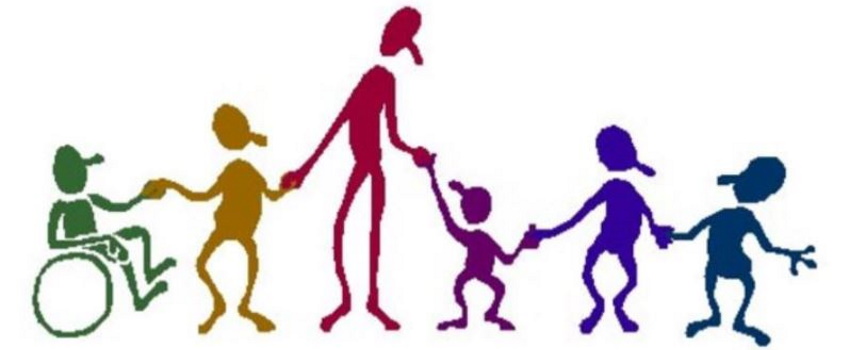Child Find is a component of 2004 Individuals with Disabilities Education Act (IDEA) that requires districts to locate, identify, and evaluate all children with disabilities, aged birth to 21, who are in need of early intervention or special education services.
In conjunction with Child Find activities conducted by school districts pursuant to WAC 392-172A-02040 and the reports on blind/visually impaired or deaf-blind children provided by educational service districts pursuant to RCW 72.40.070, Washington State School for the Blind (WSSB) will provide an online survey on a yearly basis to all special education directors to identify children within their districts who are blind/visually impaired or deaf-blind; information to school districts regarding service delivery options in the state for students who are blind/visually impaired or deaf-blind a resource and referral guide listing programs and services available statewide; and a mechanism for school districts to request training and/or consultation support for district personnel.
Washington State Legislature
WAC 392-172A-02040 states school districts are required:
- School districts shall conduct child find activities calculated to reach all students with a suspected disability for the purpose of locating, evaluating and identifying students who are in need of special education and related services, regardless of the severity of their disability. The child find activities shall extend to students residing within the school district boundaries whether or not they are enrolled in the public school system; except that students attending nonprofit private elementary or secondary schools located within the school district boundaries shall be located, identified and evaluated consistent with WAC 392-172A-04005. School districts will conduct any required child find activities for infants and toddlers, consistent with the child find requirements of the lead agency for Part C of the act.
- Child find activities must be calculated to reach students who are homeless, wards of the state, highly mobile students with disabilities, such as homeless and migrant students and students who are suspected of being a student with a disability and in need of special education, even though they are advancing from grade to grade.
- The school district shall have policies and procedures in effect that describe the methods it uses to conduct child find activities in accordance with subsections (1) and (2) of this section. Methods used may include but are not limited to activities such as:
- Providing written notification to all parents of students in the school district's jurisdiction regarding access to and the use of its child find system;
- Posting notices in school buildings, other public agency offices, medical facilities, and other public areas, describing the availability of child find;
- Offering preschool developmental screenings;
- Conducting local media informational campaigns;
- Coordinating distribution of information with other child find programs within public and private agencies; and
- Using internal district child find methods such as screening, reviewing district-wide test results, providing in-service education to staff, and other methods developed by the school district to identify, locate and evaluate students including a systematic, intervention based, process within general education for determining the need for a special education referral.
Who is covered by Child Find?
The Individuals with Disabilities Education Act (IDEA) requires all states to have policies and procedures in effect to ensure that all children who are in need of special education and related services are identified, located, and evaluated. Child Find applies to all children who reside within the State. This includes infants, toddlers, preschoolers, children in private, public, or tribal schools, highly mobile, homeless, or migrant children.
Contact the Ellensburg School District Special Education if:
- You have questions whether your child has a disability
- You are concerned about your infant, toddler, or preschooler's development
- You know your child has a disability and are looking for appropriate educational services
- You would like to know how to help your school age child succeed in school
Child Find Screenings for Children Birth to Three
Early intervention services during the first three years can make a big difference in a child’s life. The Department of Early Learning's (DEL) Early Support for Infants and Toddlers (ESIT) program provides services to children birth to age 3 who have disabilities or developmental delays.
Eligible infants and toddlers and their families are entitled to individualized, quality early intervention services in accordance with the federal Individuals with Disabilities Education Act (IDEA), Part C
For Questions or Assistance:
Kerry McMurry
220 East Helena Avenue
Ellensburg, WA 98926
(509) 962-4200, Ext. 227
Screening for Children Three to Five (Preschool)
The Early Childhood Development Team provides a free developmental screening and/or special education evaluation for all children ages 3 to 5 years suspected of having a developmental delay or disability.
The purpose of screening is to identify any developmental delays that may potentially affect a child’s functional or pre-academic performance.
Upon completion of the screening, a member of the Early Childhood Development Team will explain the results to the child’s parents/guardian. If the screening results indicate the child is having difficulty in one or more areas, a meeting will be scheduled to refer the student for a possible special education evaluation.
Eligible preschool students are entitled to individualized, quality early intervention special education services in accordance with the federal Individuals with Disabilities Education Act (IDEA), Part B
Schedule a Screening Appointment:
Tiffany Moenoa
School Psychologist, Ellensburg School District
1300 East 3rd Avenue
Ellensburg, WA 98926
(509) 306-6221
Child Find for Kindergarten age - 21 years old
All children entering kindergarten must be 5 years old by August 31.
Child find activities are extended to students who are home-schooled or attending private elementary or secondary schools located within the Ellensburg School District boundaries. To refer a student of concern, contact your neighborhood school.






